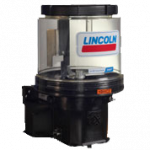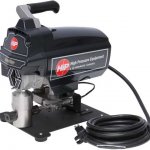Rotary Screw Air Compressor Preventative Maintenance and Servicing
If you are working in an industrial or manufacturing setting, chances are your pneumatic equipment sees a lot of use. Because you rely on compressed air for so many things, it is vital that you keep your rotary screw air compressor in good condition—well-maintained, clean and professionally serviced when necessary. A quality compressor can last for years, but only if it is properly maintained.
Fortunately, there are a number of preventative maintenance steps you can take to protect your equipment. And when professional service is needed, you can reach out to AHE and get the skilled attention required to keep your compressor going for the long-haul.
Preventative Maintenance Basics
1. Practice proper safety protocols.
Before you attempt to do anything with your compressor, whether operating, maintaining or making adjustments, make sure you know how to do it safely. Safety protocols are there to protect you. Air compressors have the potential to do serious and even life-threatening harm, from electrocution to burns to explosions. None of these things have to happen if you follow the safety guidelines, so never cut corners when it comes to safety!
The owner’s manual should give a good breakdown of safety practices, but there are a few worth noting here:
- Cut off the electricity before maintenance and use a meter to verify there is no power in the machine.
- Vent all air pressure.
- Oil may be hot, so be careful.
2. Know your oil.
The owner’s manual will tell you which kind of oil to use in your machine, and how long you can wait before you change the oil. Although the concept behind the rotary screw compressor is relatively simple, there are a lot of components on the inside that require lubrication. Without proper lubrication, friction will occur and wear will happen faster than it should. Every bit of extra friction lessens the life of your machine, so make certain you pay attention to your compressor oil.
Keep in mind that oil life varies based on the conditions in which you use the machine. Be aware of your specific conditions and act accordingly based on the information in your owner’s manual.
3. Change your filters.
There are several filters that clean the air and oil coursing through pneumatic systems. But the filters can only clean so much volume before they become clogged and stop working as well as they need to. Failing to change your filter is one of the big things that can damage your compressor. As contaminants make their way into the oil or the air, they flow through your equipment and cause extra wear and tear—and may even clog something, leading to expensive downtime.
4. Check your belt or drive.
Your device may use a belt, or it may be direct drive. Belts should be checked at least every 500 hours, or more depending on the conditions. Many direct drive machines need to be aligned to avoid damage. You should have the alignment checked by a professional, especially if you move the machine to a different location.
5. Inspect the controls once a month.
There are a variety of gauges, indicators, safety switches, controls and drains on your machine. You should check all of these and adjust them as necessary at least once a month. If you make sure your machine is clean it will facilitate your inspections.
6. Clean the machine regularly.
The conditions in which you use your compressor may make it tough to keep it clean. But no matter how dirty things get, it is important to take the time to clean it regularly. It is much easier to spot an issue, like a leak, if your machine is clean and the area it sits in is cleaned.
Get it Professionally Inspected
No one wants to spend money on unnecessary services. But sometimes professional assistance is an investment more than expenditure. Considering how much you rely on your compressor, and how expensive it would be to replace, it makes sense to call in a pro from time to time. This is especially true if you suspect something is wrong with the machine. With AHE’s preventative maintenance plans, we will periodically service your unit for you and handle any issues.
While the steps listed above are safe for you to do as long as you are careful, true in-depth maintenance and any repairs should only be conducted by someone that has been trained to the job right. Professional training and experience are necessary for safety reasons and to ensure that no mistakes are made—mistakes that could destroy your equipment.
If you would like more information on servicing your rotary screw air compressor, please contact us. AHE is here to help with all your hydraulic system and pneumatic system needs.










